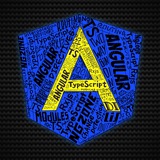#angular #signals #computed #effect
Computed Signals: Derived Signal
Function: Computed signals represent values derived from other signals. Think of them as formulas that take existing signals as inputs and produce a new output value.
Creation: You define them using the computed function, specifying a derivation function that outlines how the computed value is calculated.
Benefits:
Lazy Evaluation: Computed signals are calculated only when their value is needed. This avoids unnecessary computations.
Memoization: Subsequent reads of the computed signal with the same dependencies return the cached value, improving performance.
Dependency Tracking: Angular automatically tracks which signals a computed signal depends on. When any of those signals change, the computed signal is automatically recalculated.
Effects: Actions Triggered by Signal Changes
Function: Effects are functions that execute in response to changes in signals. They typically perform side effects like logging, interacting with external APIs, or updating local storage.
Creation: You create effects using the effect function. This function can optionally accept a onCleanup function for managing long-running operations.
Benefits:
Reactivity: Effects automatically run whenever their dependent signals change, ensuring your application stays up-to-date.
Asynchronous Execution: Effects run asynchronously during change detection, preventing them from blocking the main thread.
✅ Article link
Please open Telegram to view this post
VIEW IN TELEGRAM
Please open Telegram to view this post
VIEW IN TELEGRAM
❤1
